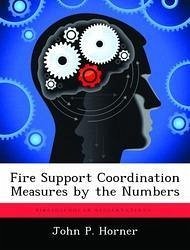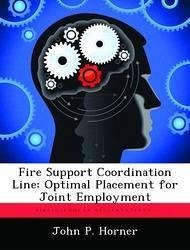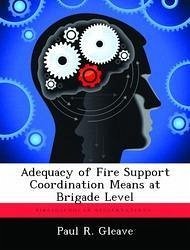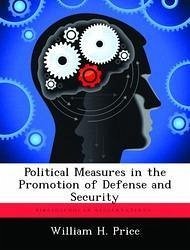Nicht lieferbar

Fire Support Coordination Measures by the Numbers
Versandkostenfrei!
Nicht lieferbar
Fire Support Coordination Measures (FSCMs) can significantly increase or decrease the efficiency of joint combat operations. This thesis examines use and placement of the Fire Support Coordination Line (FSCL). The line helps ensure that firepower directed at a surface commander's area of operations (AO) is properly coordinated toward objectives assigned by the Joint Force Commander (JFC). Research suggests that an effects-based analysis of the various fires supplied by the land and air components offers an appropriate means to determine FSCL location. Short of the FSCL, where land forces typic...
Fire Support Coordination Measures (FSCMs) can significantly increase or decrease the efficiency of joint combat operations. This thesis examines use and placement of the Fire Support Coordination Line (FSCL). The line helps ensure that firepower directed at a surface commander's area of operations (AO) is properly coordinated toward objectives assigned by the Joint Force Commander (JFC). Research suggests that an effects-based analysis of the various fires supplied by the land and air components offers an appropriate means to determine FSCL location. Short of the FSCL, where land forces typically supply the preponderance of effects, the ground commander should act as coordinating authority. Beyond it, when established at the depth where air forces tend to provide the preponderance of effects, the Joint Forces Air Component Commander (JFACC) should assume coordination responsibility. Hence, forces assigned to the land and air component commanders would coordinate their employment with that component providing the dominant battlefield effects. Operation Desert Storm presents several case studies that tend to support the idea. Khafji (defensive operations to repel an attack), 73 Easting (offensive operations against a defending enemy), and attacks on the "Highway of Death" (operations against a withdrawing enemy) provide reinforcing evidence. Analysis indicates that an FSCL based on the preponderance of effects takes into account the various situation-specific factors mentioned in joint doctrine.









